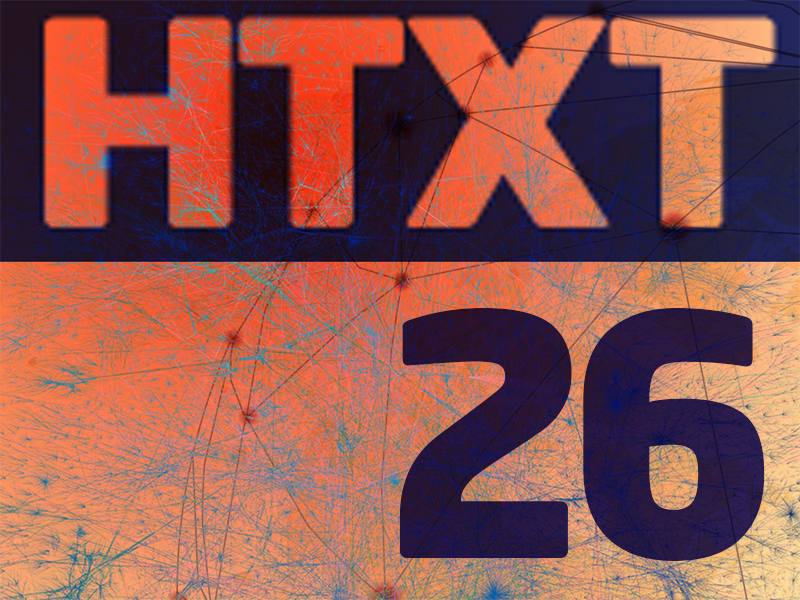Auditoría de la Inteligencia Artificial como nueva capa de mediación: Introducción de una nueva caja negra para abordar otra caja negra
Article Sidebar

Main Article Content
El discurso de la auditoría de la inteligencia artificial (IA) está surgiendo como un campo de la ética aplicada a la IA para abordar los problemas de imparcialidad, parcialidad y responsabilidad de los sistemas de IA. El mandato de auditar la IA asume y propone la figura experta de un auditor para abordar la problemática de la caja negra de la IA. Contrariamente a esto, el texto argumenta que la figura de un auditor experto instala otra capa de mediación. Esta capa de mediación introduce otra caja negra -el auditor, las prácticas de auditoría y el escepticismo profesional- para abordar la problemática de la caja negra existente. El texto sostiene que es importante cuestionar radicalmente la necesidad o la eficacia de la figura de un auditor experto en IA en quien todos los usuarios de un sistema de IA delegan su representación. La introducción de culturas de auditoría en el ecosistema de la IA corre el riesgo de excluir futuros debates sobre la IA y su relación con los seres humanos y otros no humanos, y de reducir de nuevo el problema a una cuestión técnica.
Article Details

Esta obra está bajo una licencia internacional Creative Commons Atribución-NoComercial-SinDerivadas 4.0.
(c) Cheshta Arora, Debarun Sarkar, 2023
Derechos de autor

Esta obra está publicada bajo una licencia Creative Commons Reconocimiento-NoComercial-SinObraDerivada 4.0 Internacional (CC BY-NC-ND 4.0)
Cheshta Arora, Investigadora independiente
Cheshta Arora es una investigadora independiente, escritora y etnógrafa afincada en la India que estudia los sistemas sociotécnicos en la contemporaneidad. Cheshta es doctora por el National Institute of Advanced Studies/Manipal Academy of Higher Education. En la actualidad, es co-investigador principal en un proyecto de auditoría de IA financiado por IBM-Tech Ethics Lab, Universidad de Notre Dame (Web del proyecto: https://audit4sg.org/).
Debarun Sarkar, Investigador independiente
Debarun Sarkar es investigador independiente y escritor residente en la India. Es doctorando del Department of Sociology de la University of Mumbai. Como investigador independiente, actualmente es co-investigador principal en un proyecto de auditoría de IA financiado por Notre Dame-IBM Technology Ethics Lab, Universidad de Notre Dame (Web del proyecto: https://audit4sg.org/).
Ayling, J., & Chapman, A. (2022). Putting AI ethics to work: Are the tools fit for purpose? AI and Ethics, 2, 405–429. https://doi.org/10.1007/s43681-021-00084-x
Cowls, J., Tsamados, A., Taddeo, M., & Floridi, L. (2021). A definition, benchmark and database of AI for social good initiatives. Nature Machine Intelligence, 3(2), 111–115. https://doi.org/10.1038/s42256-021-00296-0
De Togni, G., Erikainen, S., Chan, S., & Cunningham-Burley, S. (2021). What makes AI ‘intelligent’ and ‘caring’? Exploring affect and relationality across three sites of intelligence and care. Social Science & Medicine, 277, 113874. https://doi.org/10.1016/j.socscimed.2021.113874
DeFond, M., & Zhang, J. (2014). A review of archival auditing research. Journal of Accounting and Economics, 58(2–3), 275–326. https://doi.org/10.1016/j.jacceco.2014.09.002
Floridi, L., Cowls, J., King, T. C., & Taddeo, M. (2020). How to Design AI for Social Good: Seven Essential Factors. Science and Engineering Ethics, 26(3), 1771–1796. https://doi.org/10.1007/s11948-020-00213-5
Laato, S., Tiainen, M., Najmul Islam, A. K. M., & Mäntymäki, M. (2022). How to explain AI systems to end users: A systematic literature review and research agenda. Internet Research, 32(7), 1–31. https://doi.org/10.1108/INTR-08-2021-0600
Latour, B. (2005). Reassembling the social: An introduction to Actor-Network-Theory. Oxford University Press.
Mökander, J., & Floridi, L. (2021). Ethics-Based Auditing to Develop Trustworthy AI. Minds and Machines, 31(2), 323–327. https://doi.org/10.1007/s11023-021-09557-8
Morley, J., Elhalal, A., Garcia, F., Kinsey, L., Mökander, J., & Floridi, L. (2021). Ethics as a Service: A Pragmatic Operationalisation of AI Ethics. Minds and Machines, 31(2), 239–256. https://doi.org/10.1007/s11023-021-09563-w
Nickel, P. J., Franssen, M., & Kroes, P. (2010). Can We Make Sense of the Notion of Trustworthy Technology? Knowledge, Technology & Policy, 23(3), 429–444. https://doi.org/10.1007/s12130-010-9124-6
Olsen, C. (2017). A Study of Professional Skepticism. Springer International Publishing. https://doi.org/10.1007/978-3-319-49896-6
Pasquinelli, M., & Joler, V. (2021). The Nooscope manifested: AI as instrument of knowledge extractivism. AI & SOCIETY, 36(4), 1263–1280. https://doi.org/10.1007/s00146-020-01097-6
Phan, T., Goldfein, J., Kuch, D., & Mann, M. (2022). Introduction: Economies of Virtue. In T. Phan, J. Goldfein, D. Kuch, & M. Mann (Eds.), Economics of Virtue – The Circulation of ‘Ethics‘ in AI (pp. 6–22). Institute of Network Cultures. https://networkcultures.org/wp-content/uploads/2022/12/EconomiesofVirtueINC2022TOD46-2.pdf
Schelenz, L., & Pawelec, M. (2022). Information and Communication Technologies for Development (ICT4D) critique. Information Technology for Development, 28(1), 165–188. https://doi.org/10.1080/02681102.2021.1937473
Shneiderman, B. (2020). Bridging the Gap Between Ethics and Practice: Guidelines for Reliable, Safe, and Trustworthy Human-centered AI Systems. ACM Transactions on Interactive Intelligent Systems, 10(4), 1–31. https://doi.org/10.1145/3419764
Shore, C., & Wright, S. (2015). Governing by numbers: Audit culture, rankings and the new world order. Social Anthropology, 23(1), 22–28. https://doi.org/10.1111/1469-8676.12098
Strathern, M. (2003). Audit Cultures: Anthropological Studies in Accountability, Ethics and the Academy. Routledge.
Vecchione, B., Levy, K., & Barocas, S. (2021). Algorithmic Auditing and Social Justice: Lessons from the History of Audit Studies. Equity and Access in Algorithms, Mechanisms, and Optimization, 1–9. https://doi.org/10.1145/3465416.3483294
von Eschenbach, W. J. (2021). Transparency and the Black Box Problem: Why We Do Not Trust AI. Philosophy & Technology, 34(4), 1607–1622. https://doi.org/10.1007/s13347-021-00477-0